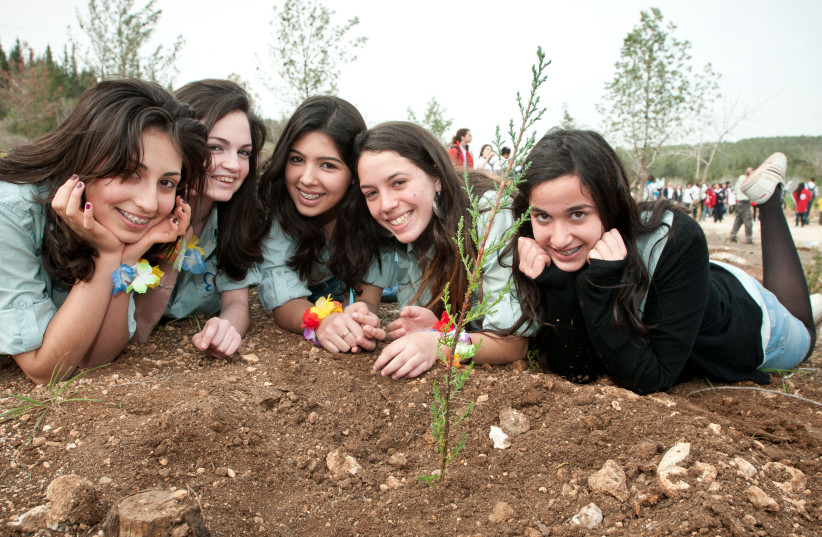As the new year for the trees, Tu Bishvat holds widespread relevance to a variety of different religious laws pertaining to the land of Israel.
For the majority of us who aren’t farmers or aren’t heavily dependent on agricultural cycles, we tend to look at the day in a broader light, taking on a cultural importance that extends beyond its traditional purpose. One blessed example is how Tu Bishvat has become associated as a form of Jewish Earth Day, an opportunity to highlight the importance of environmentalism and sustainability within Jewish tradition.
There is no disputing that these are topics that deserve our attention. Without going into debates over the extent of the climate crisis or what measures are needed to combat these challenges, it is imperative that we first recognize that this is an issue that cannot be ignored on both the humanistic and Jewish levels.
As the march of human life on earth progresses, one would be remiss not to recognize that protecting our environment is an issue of pikuach nefesh, saving the lives of others. All over the globe, hundreds of millions of people, if not all of humanity, are being directly affected by changes in our climate.
While some might be impacted by slight changes in weather patterns, for others, it forces them to find new sources of food and move out of flood zones and is arguably even leading to war and bloodshed over increasingly scarce resources. For this reason, given the value which our tradition places on human life, it would be indisputable that environmental protection is indeed a halachic imperative.

Protecting the environment is a halachic imperative via pikuach nefesh
Even if only half of the more dire scientific projections regarding the future of our globe may be accurate, we would still be looking at a very real life-and-death situation that demands our response. The question thus becomes how we can and should respond to these developments, particularly through our lens as observant Jews.
One perhaps obvious yet generally overlooked example comes from the many weekly magazines that are distributed and read in synagogues around the world. While the existence of these magazines is a blessed development that encourages increased Torah study, the paper upon which they are printed is rarely recycled. I would encourage all publishers of these weekly publications to commit to a type of green standard, pledging to work toward using only recycled paper and creating a framework so that the paper doesn’t go to waste.
Community rabbis and leaders can pledge that any kiddush in the synagogue uses multi-use, recycled or biodegradable goods. Noise pollution should be addressed by reducing music levels at weddings and other celebrations. Religious institutions can and should become more conservative with their energy consumption.
A more controversial topic yet one that deserves discussion surrounds the impact of our burial practices that require massive swaths of land, often at the expense of trees, fields or other natural resources. Halachic alternatives to the currently used methods do exist and demand consideration before this leads to irreversible consequences.
This is just a small sample of the ways that we can contribute to advancing a better, more tolerant and healthier world.
While the individual changes we make towards protecting the environment may seem small, they are crucial for our limited resources. Our future depends on it and it is our duty to make a difference. This Tu Bishvat, let us remember that preserving and protecting the natural beauty of our world is a core Jewish value and a fundamental element of who we are as a people.
The writer is the director of the Tzohar Center for Jewish Ethics and a founder of the Tzohar Rabbinical Organization in Israel.
